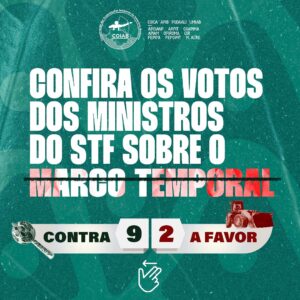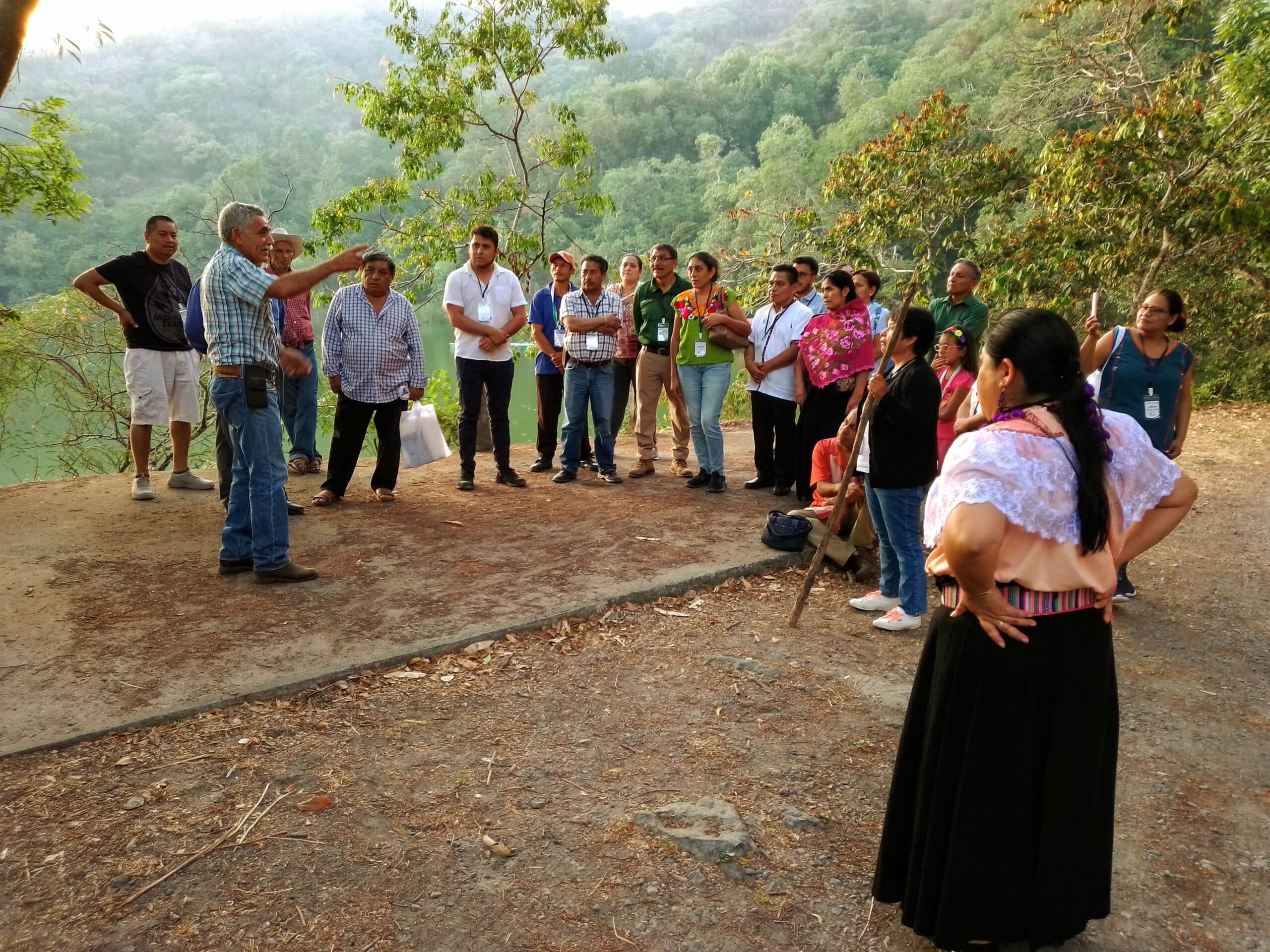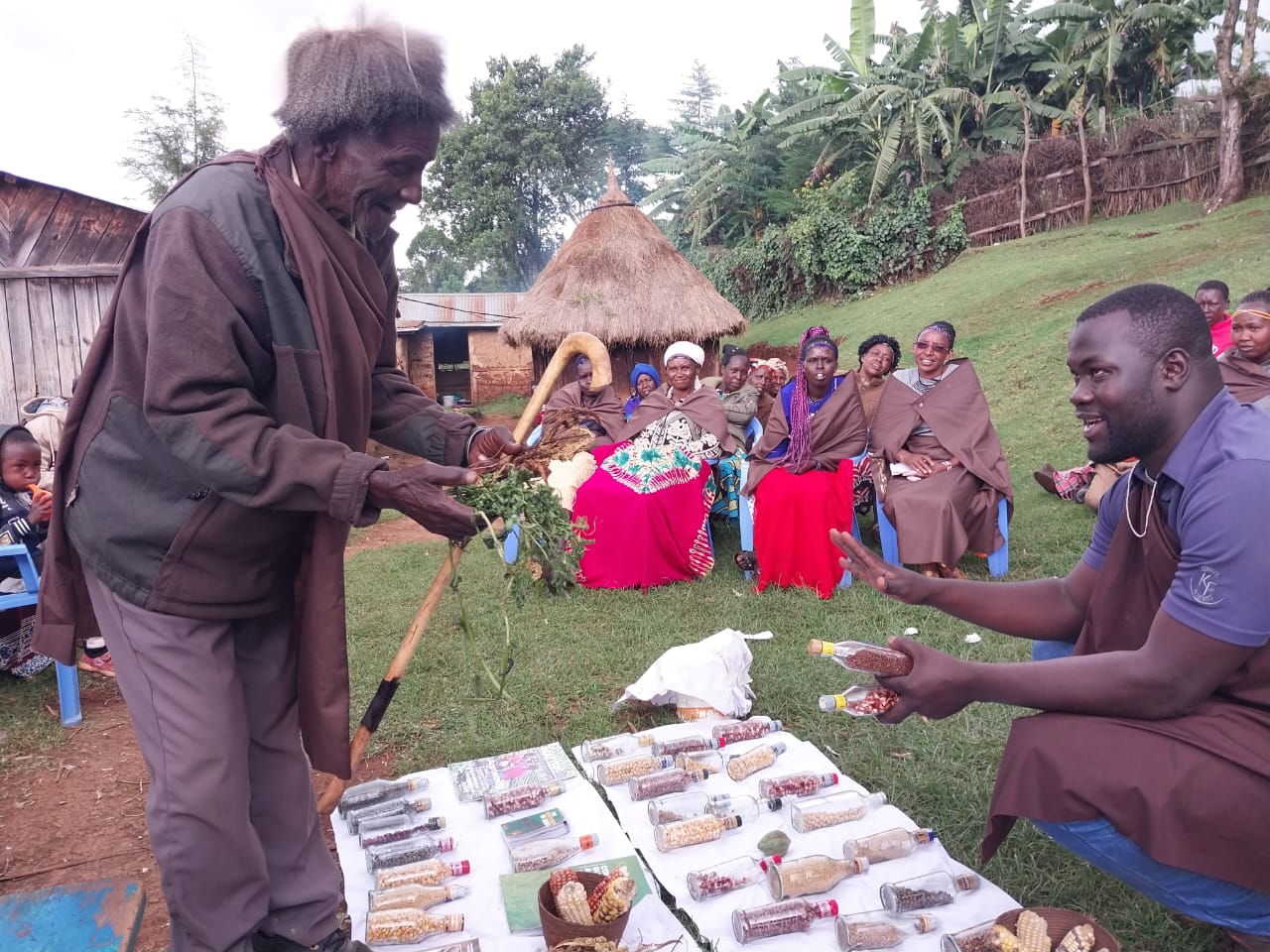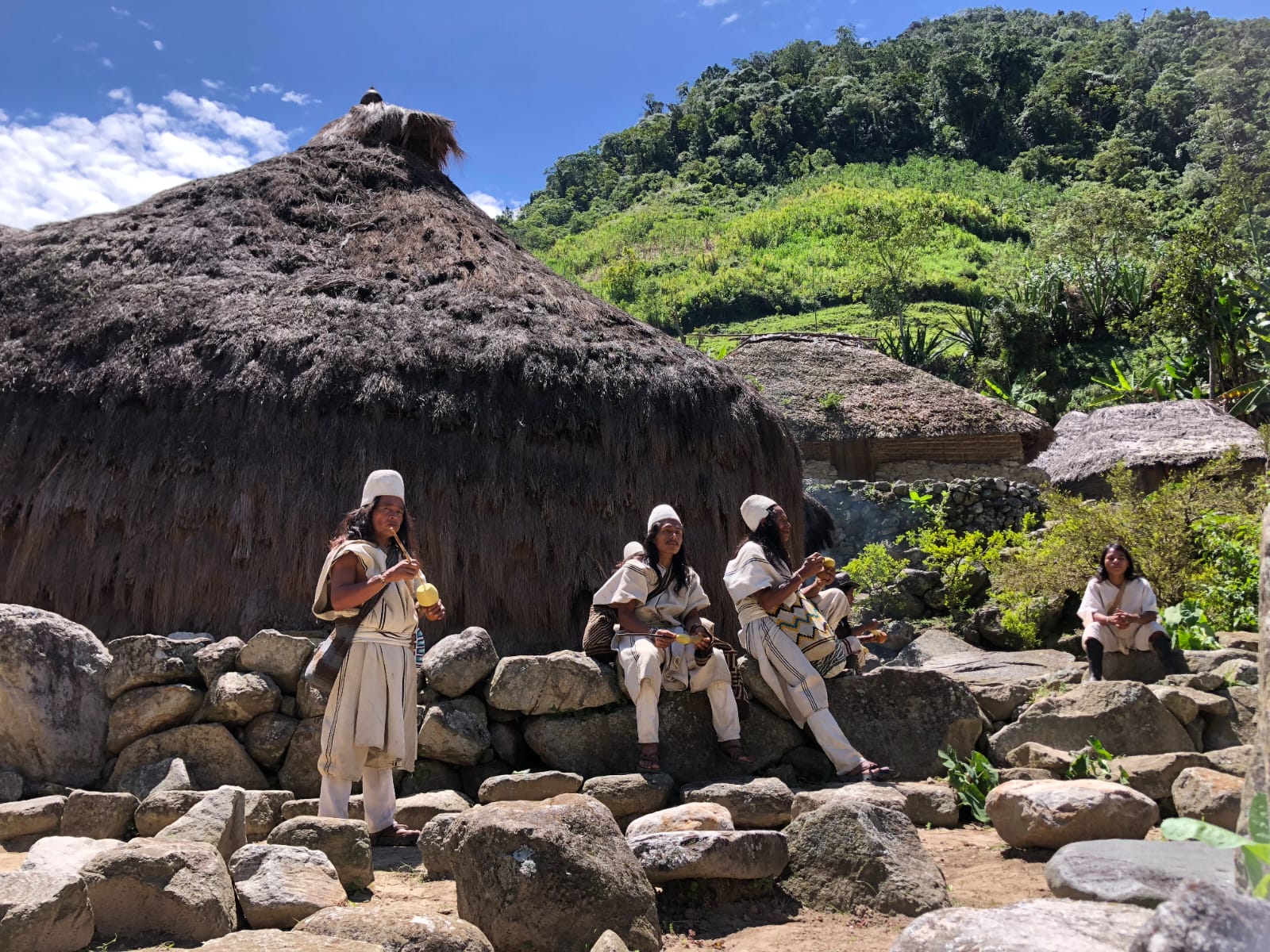On Thursday September 21st, the Brazilian Supreme Court voted against the so called ‘Marco Temporal’, which would have forced the country’s Indigenous Peoples to demonstrate that any territories claimed as traditional, had been occupied by them prior to the Brazilian Constitution of 1988. Court magistrate Carmen Lucia stated that Brazilian Society had an unpayable debt to Indigenous Peoples.
Article 231 of the Constitution grants Indigenous Peoples the right to land they have “traditionally occupied”, and according to the National Indigenous Peoples Foundation (FUNAI), 761 territories covering about 1.2 million square kilometers (almost 14% of Brazil’s territory) have in fact been claimed. But of these the government has recognized only 475, despite the fact that the 1988 Constitution also guaranteed that all claims be resolved within five years.
The legal argument, promoted by the ‘Ruralist’ block of legislators representing the interests of agribusiness, miners and cattle ranchers, would have made that constitutional right time dependent, and placed the burden of proof on the Indigenous Peoples themselves. Such proof may have been difficult to produce: one of the principal reasons being that many Indigenous Peoples were forced to keep moving in order to avoid conflict with agribusiness, and illegal loggers and miners, the very people that today want to limit their rights
There is little doubt that a vote in favor of the ‘Marco Temporal’ would have been disastrous for the country’s Indigenous Peoples, including the Amazon’s 144 Peoples in Voluntary Isolation, who live mainly in territories created to protect them. But the fate of Brazil’s Indigenous Peoples was not the only thing in play, the entire Amazon forest would also have been dramatically affected.
Deforestation of the Brazilian Amazon is a global concern, and after the devastating effects of the Bolsonaro government’s policies, in the first year of President Lula da Silva’s third term in office, the world has seen some long desired success in reducing deforestation rates. But under the ‘Marco Temporal’ this would have represented an extremely short term victory in a much longer term war.
For example, it has been estimated that up to 95% of Indigenous territories could have been affected, contributing massively to the climate crisis. According to environmental scientist Ana Claudia Rorato of Brazil’s National Institute for Space Research, and conservation biologist Celso Silva-Junior of the Federal University of Maranhão, some 87,000 to 1 million square kilometers of forest could be left unprotected. In other words, left at the mercy of the farmers, loggers, miners, cattle ranchers and others that have fought against recognizing Indigenous territories. Clearing these forests would have caused a massive increase in carbon emissions, and have moved the Amazon closer to a tipping point: a condition which would change the hydrologic cycle and begin a process in which rainforests would be turned into much dryer savanna.
In sum, the ‘Marco Temporal’ would have had devastating consequences for both Brazilian Indigenous Peoples, and the Amazon rainforest and its priceless biodiversity. Land is Life applauds the combined efforts of Brazilian Indigenous Peoples and civil society organizations in the fight to avoid an extremely dangerous and short-sighted policy. However, we must continue to be vigilant, as despite this crucial victory the Ruralist legislative block will not disappear, and will surely be working hard to find other ways to achieve its objectives.
Fotos @Coiabamazonia




